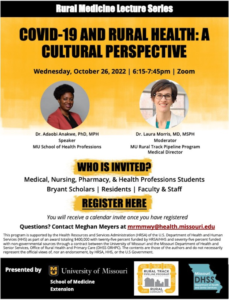October 6, 2022
Missouri WIC works to improve health of 80,000 Missourians each month
JEFFERSON CITY, MO – Every month, over 80,000 Missourians participate in the Missouri WIC program. WIC is the Special Supplemental Nutrition Program for Women, Infants, and Children. The program provides quality nutrition education, breastfeeding promotion and support, nutritious foods, and referrals to health services.
Missouri WIC offers healthy food choices that target specific essential nutrients often missing from the diets of participants, such as iron, calcium, protein, and vitamins A, C, and D. To meet these needs, the WIC food package includes fresh or frozen fruits and vegetables, whole grains, milk and yogurt along with other nutritious foods.
“The WIC program takes into consideration the distinct needs of the women, infants, and children it serves, providing participants with individualized nutrition counseling and then prescribes a food package to fit their nutritional needs,” said Angie Oesterly, Missouri WIC Director. “Breastfeeding mothers receive additional support to ensure a successful breastfeeding journey for their infant and themselves.”
To qualify for the WIC program, participants must meet the following requirements:
- Be a pregnant, breastfeeding, or new mother; an infant up to age one; or a child up to their fifth birthday; and
- Be a resident of Missouri; and
- Meet income eligibility requirements.
Missourians interested in learning about the benefits of WIC may visit by clicking here or call TEL-LINK at 1-800-835-5465 to find the WIC local agency in their county.
In accordance with federal civil rights law and U.S. Department of Agriculture (USDA) civil rights regulations and policies, the USDA, its Agencies, offices, and employees, and institutions participating in or administering USDA programs are prohibited from discriminating based on race, color, national origin, sex (including gender identity and sexual orientation), disability, age, or reprisal or retaliation for prior civil rights activity in any program or activity conducted or funded by USDA. Nondiscrimination and complaint information can be found on our website at wic.mo.gov.
WIC is funded by the USDA and is administered by the Missouri Department of Health and Senior Services. This institution is an equal opportunity provider.

